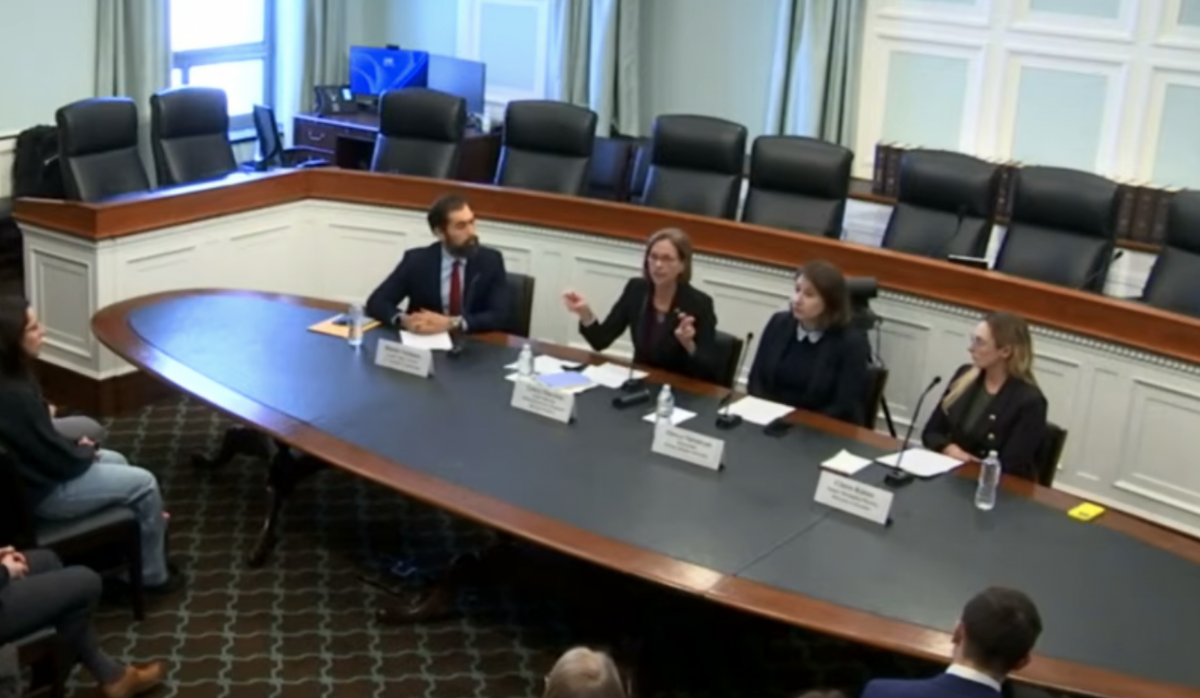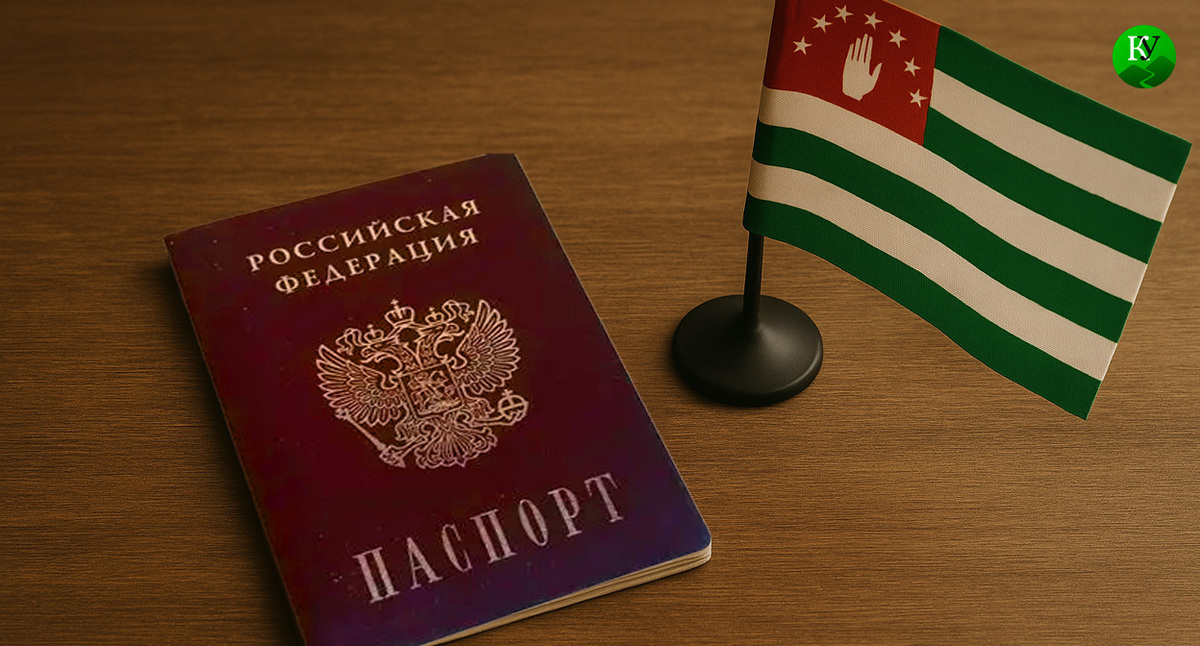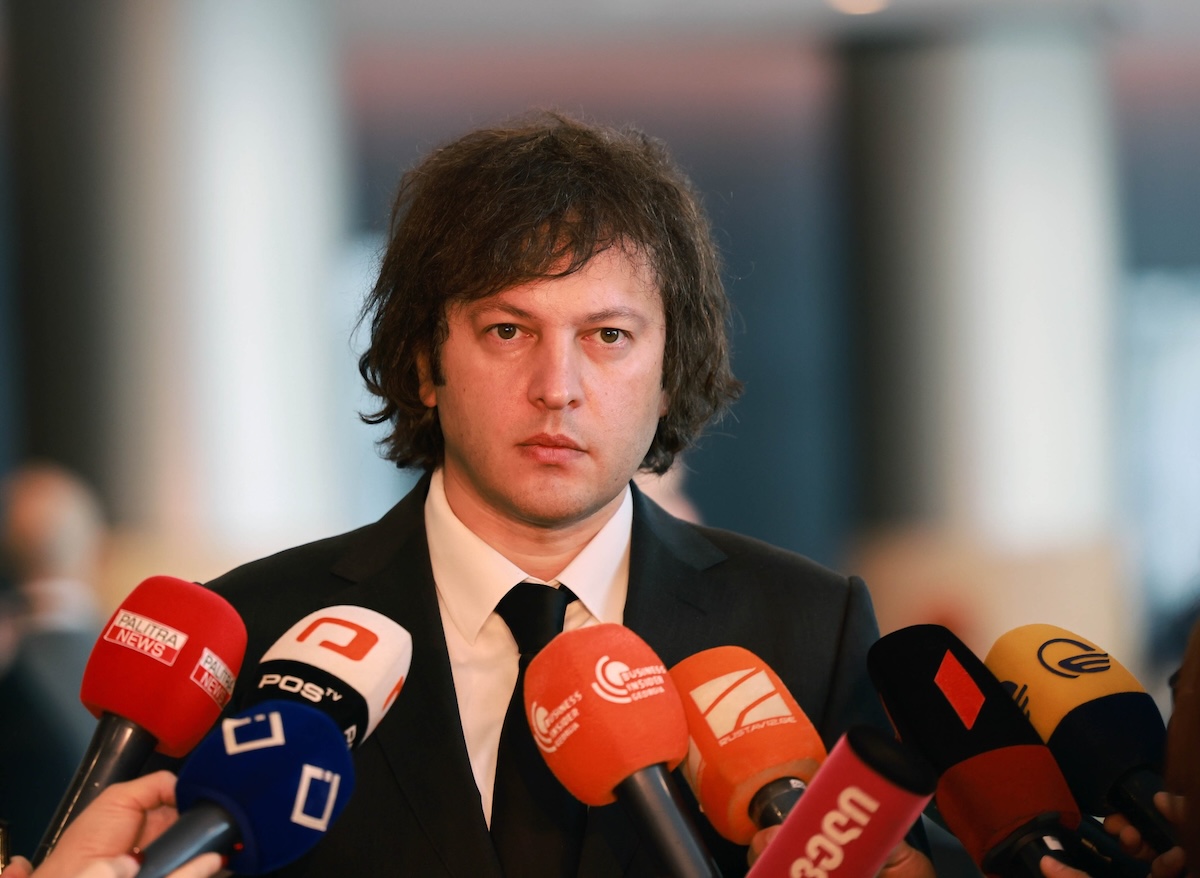Lelo Burti - A different kind of ball game
Once a year Shukhuti, a remote village in Georgia’s Guria region, draws the attention of the whole country and fills up the only hotel in the area. On Easter Sunday the main road is closed and all the locals, including many tourists and journalists from within the country and abroad, gather for a one day festival, which features a very unusual, traditional game – Lelo Burti in Georgia.
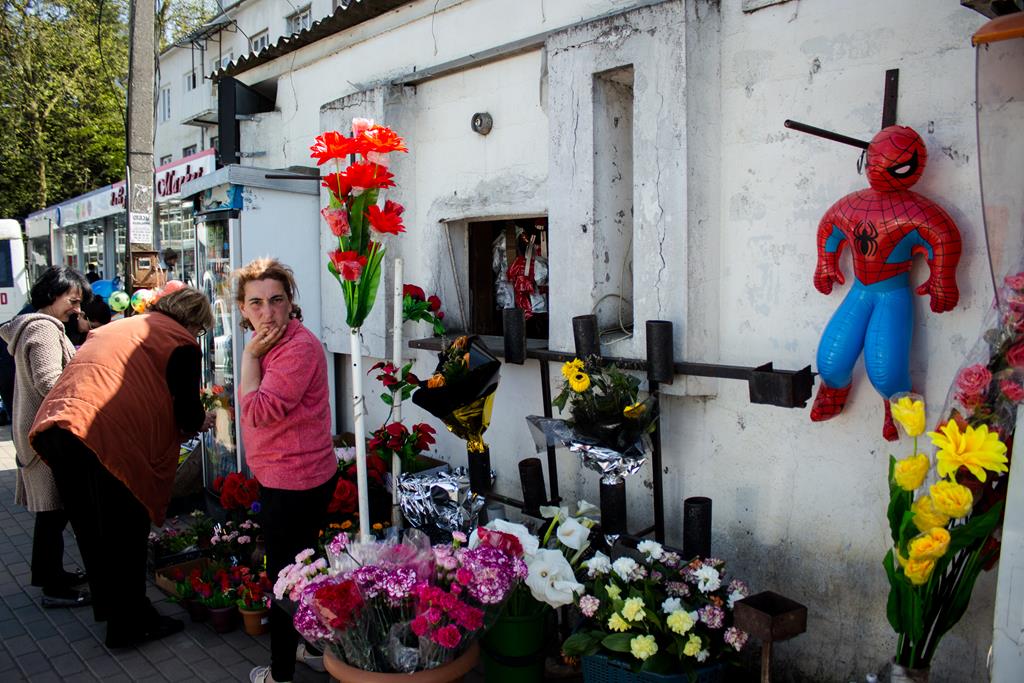

‘The Furious Gurian’ is a statue situated in the centre of Lanchkhuti. This communistic monument was removed some time ago, but the community decided to bring it back as the locals considered it to be the only tourist attraction in the area.
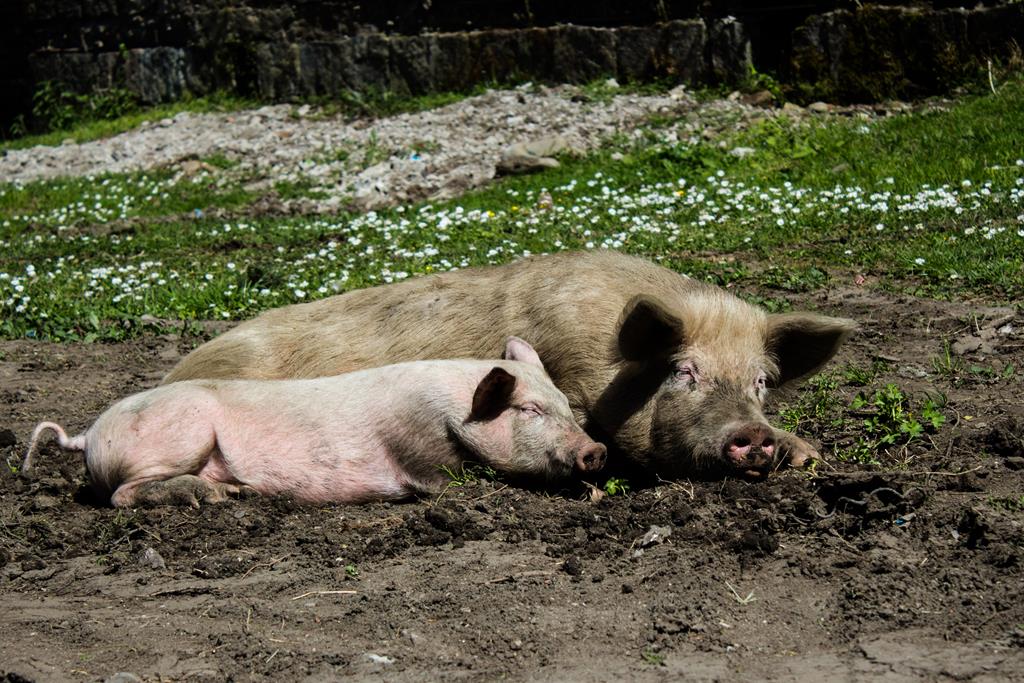
Lelo Burti literally means ‘field ball’. It originated from the time of the Ottoman Empire when, according to legend, a large Ottoman army was defeated by a small group of Gurian troops. Since then the game is played in commemoration of the event.
Although the game is commonly known as ‘rugby without rules’, some do exist:
- Players are divided into two teams: Zemo (upper) Shukhuti and Kvemo (lower) Shukhuti. There is no set number of players – the bigger the better, as it increases the chances of winning.
- The game is played with a ball which is filled with sand and dirt, soaked with wine and sown shut before the event. It should weigh approximately 16kg.
- The game starts in the centre of the village, and players have to carry the ball over to one of the streams on the opposite side ( approximate 500 meters away from each other). Everything between the streams form the game area, including courtyards and orchards.
- Once the ball crosses the stream the game is over. The winners have the privilege to carry the ball to the grave of a respected member of the community who died the year before.
- In the event of an injury, participants raise their hands which is a sign to pause the game and take the injured to safety. It works in most cases.
- Players can’t be under the influence of alcohol.
Event preparations start long before the time. Everyone, including cultural and sport managers are involved in preparing competitions. Kids exercise, choirs and bands have rehearsals, while local entrepreneurs prepare their products.

The local Mkhedrebi choir rehearsing in an old theater building in Lanchkhuti. They do krimantchuli (a form of yodeling) – a very unique style of singing found in the Guria region.
The day before the main event the locals meet for Resurrection Sunday. It lasts the whole night and is the most important religious event for Orthodox people. For Sukhuti and Lanchkhuti residents it is also a chance to discuss the final details of the upcoming event.

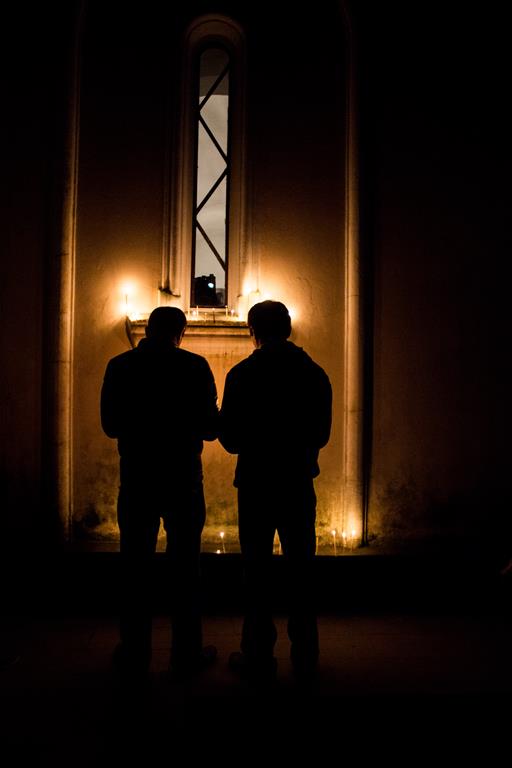
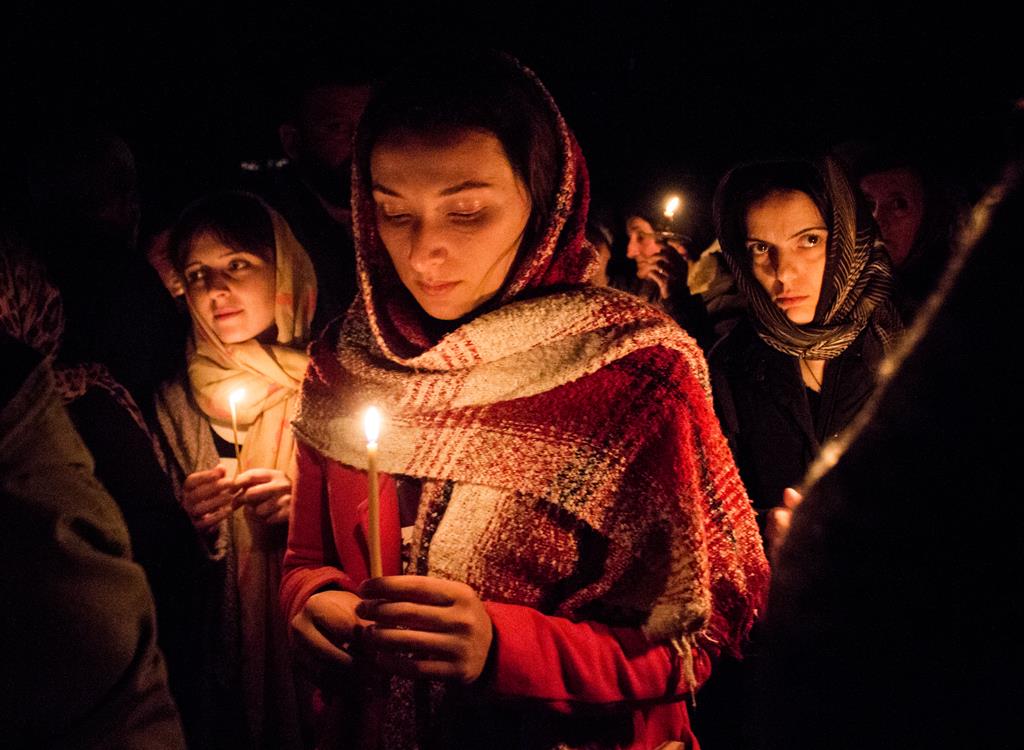
The next day the municipality meet at the venue and, from eleven o’clock, meticulously prepare the starting line for the event.

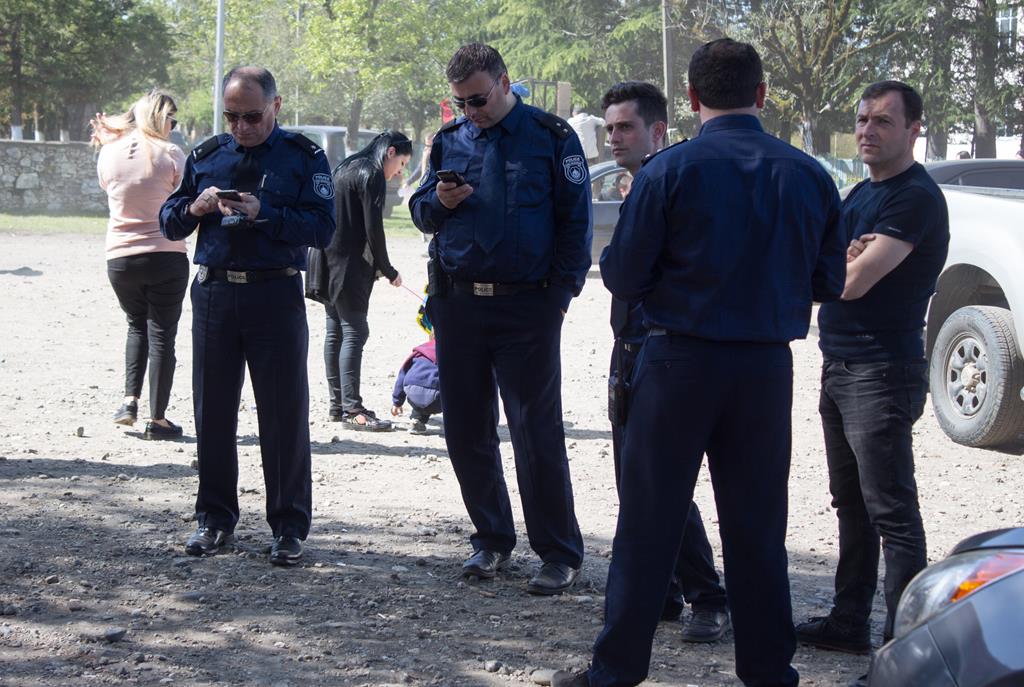
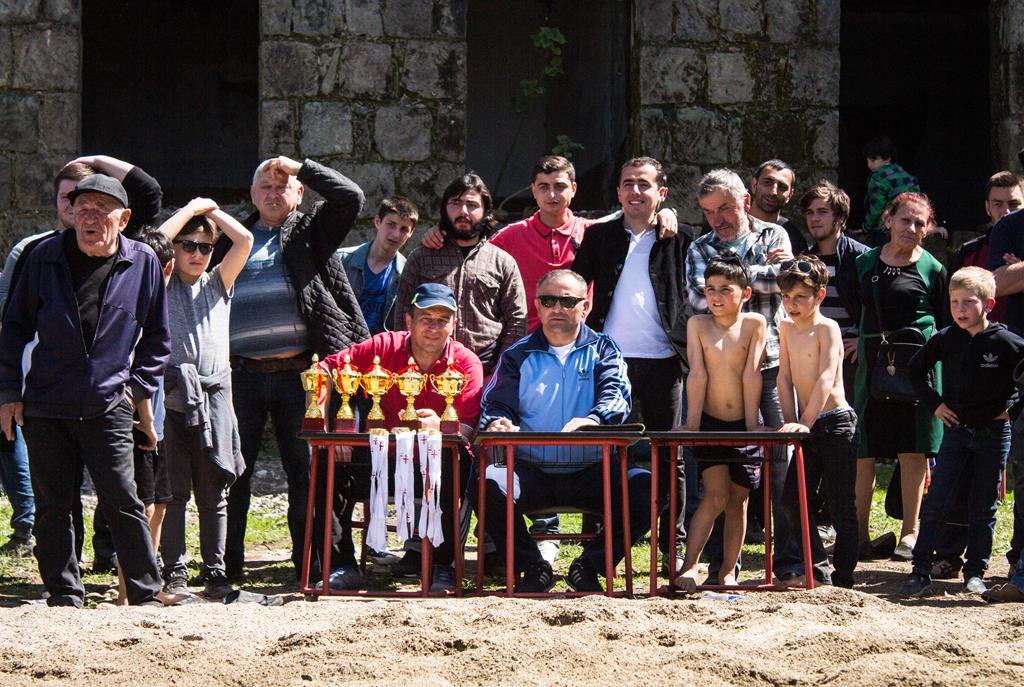
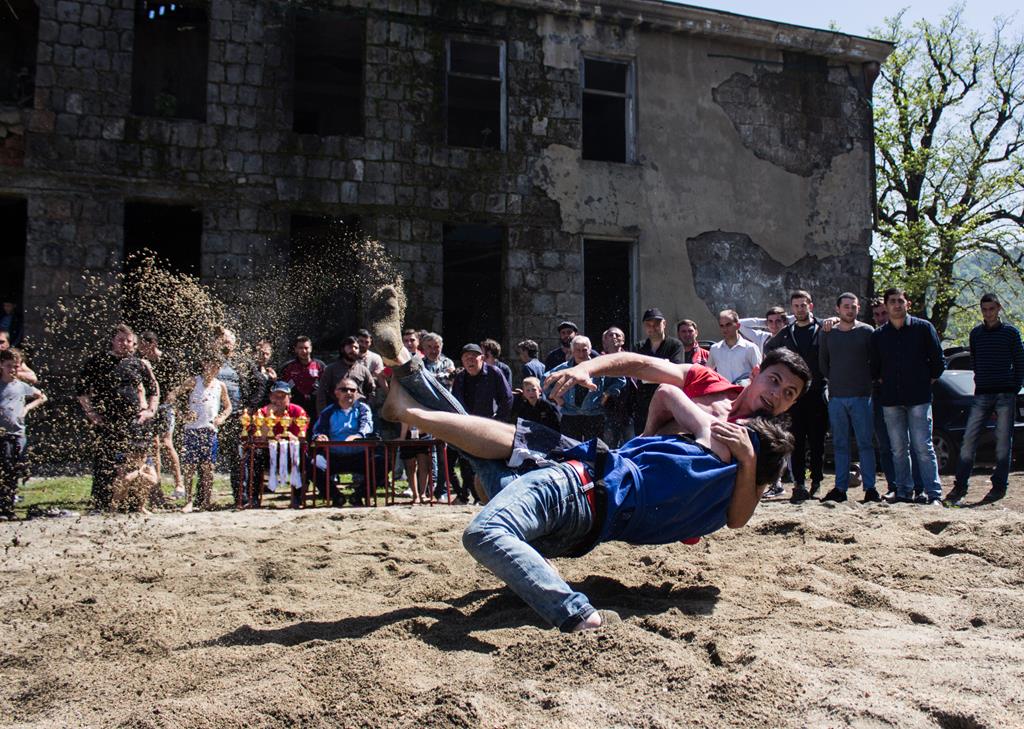
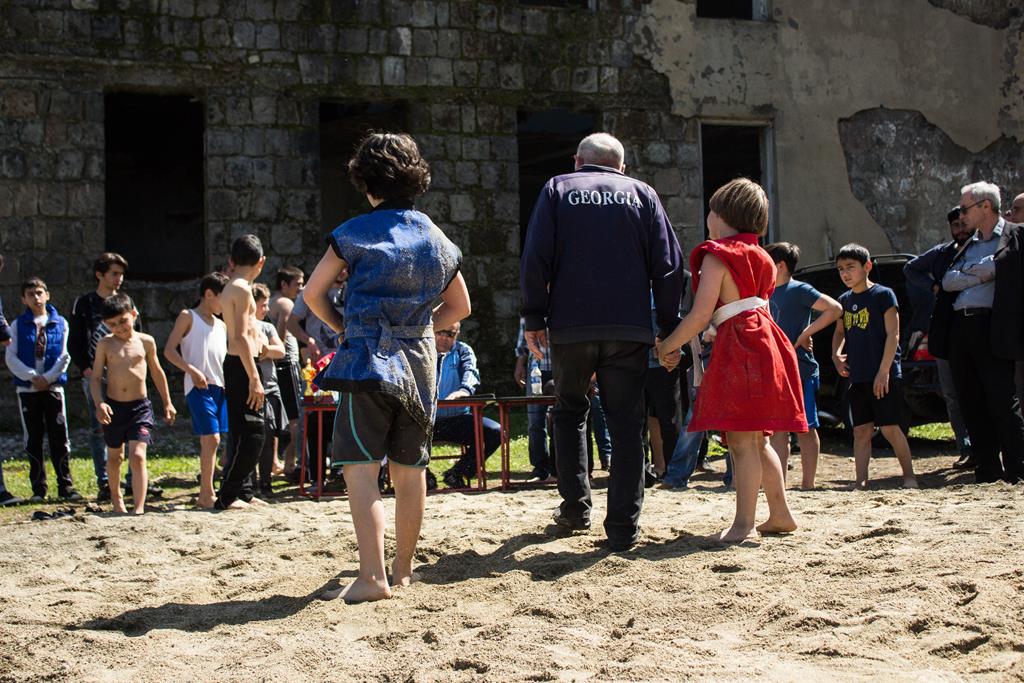

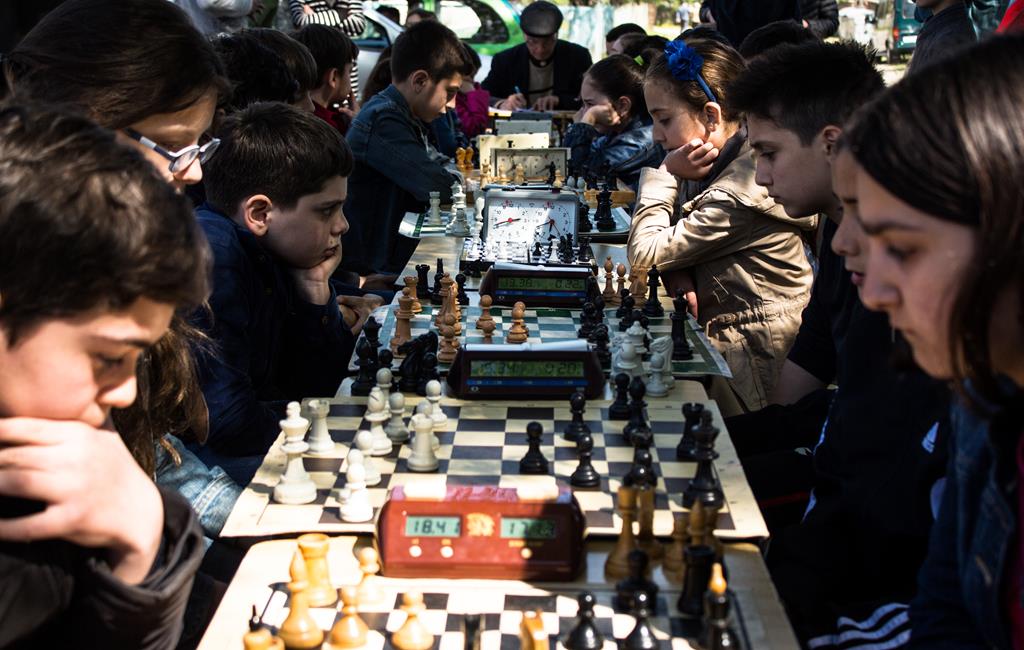
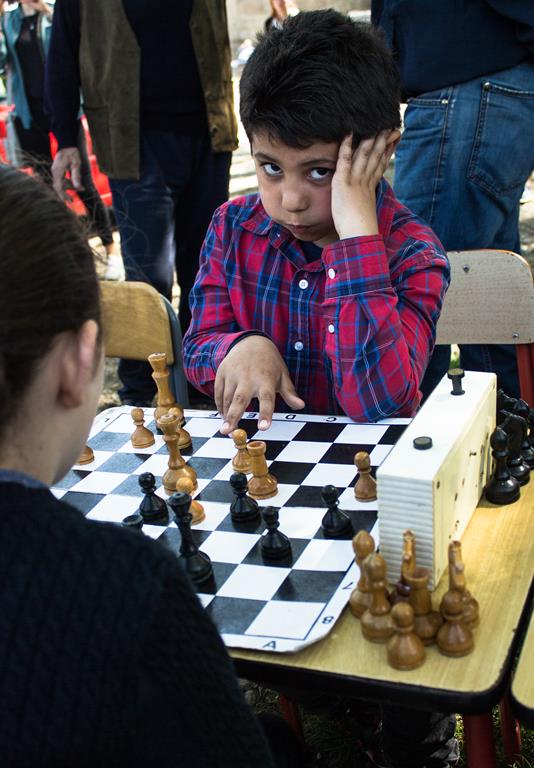
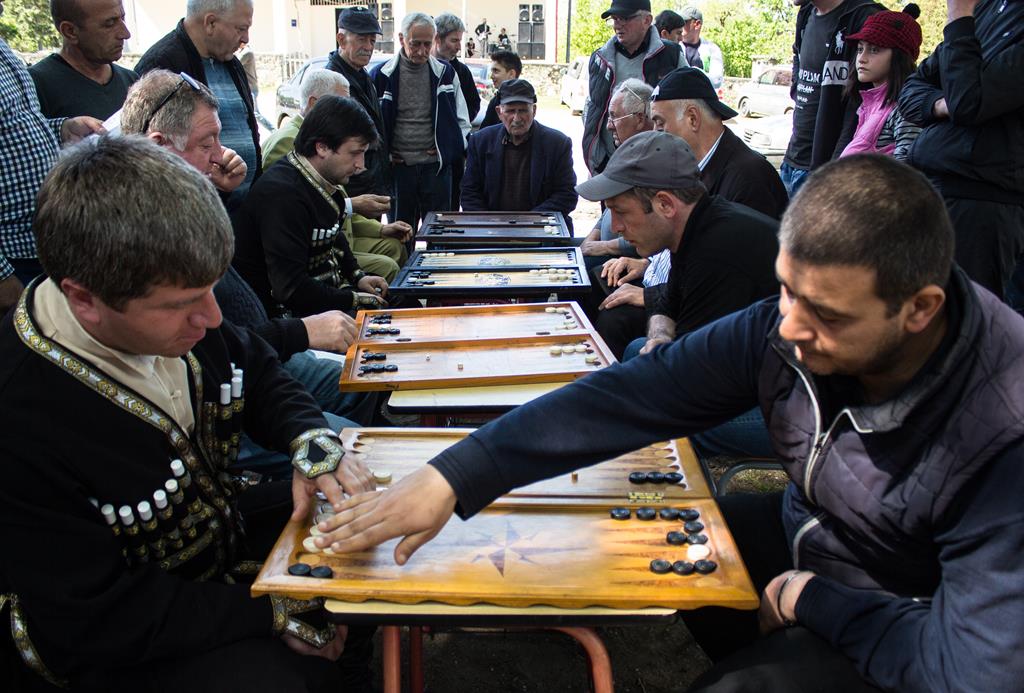
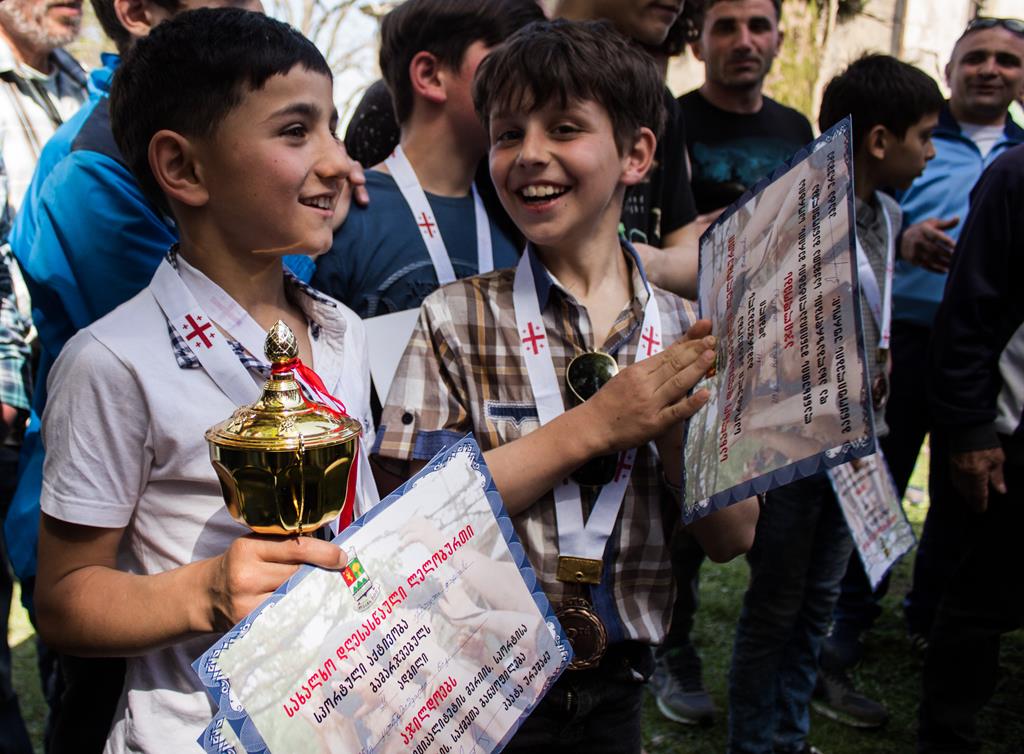
This year Lelo Burti started at 5pm because of the hot and sunny weather. The game lasted approximately three hours with several ‘pushes’ back and forth, and nearly an hour in limbo when the ball (and some players) got stuck inside a small culvert. The Zemo Sukhuti team eventually won.
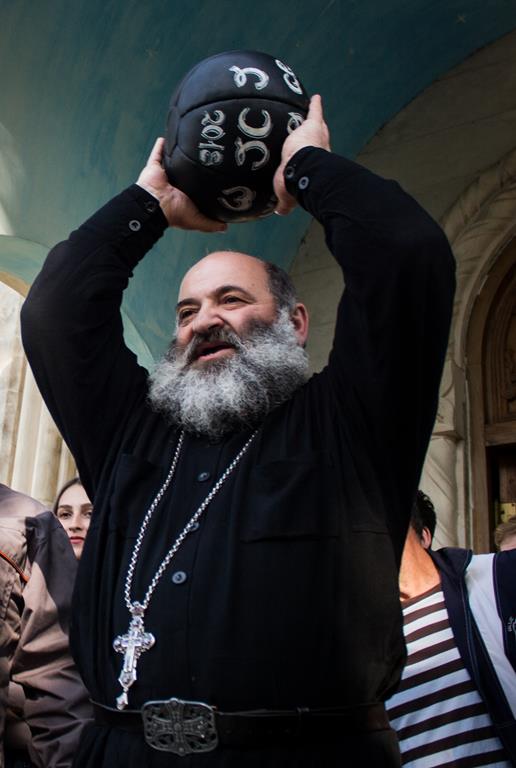
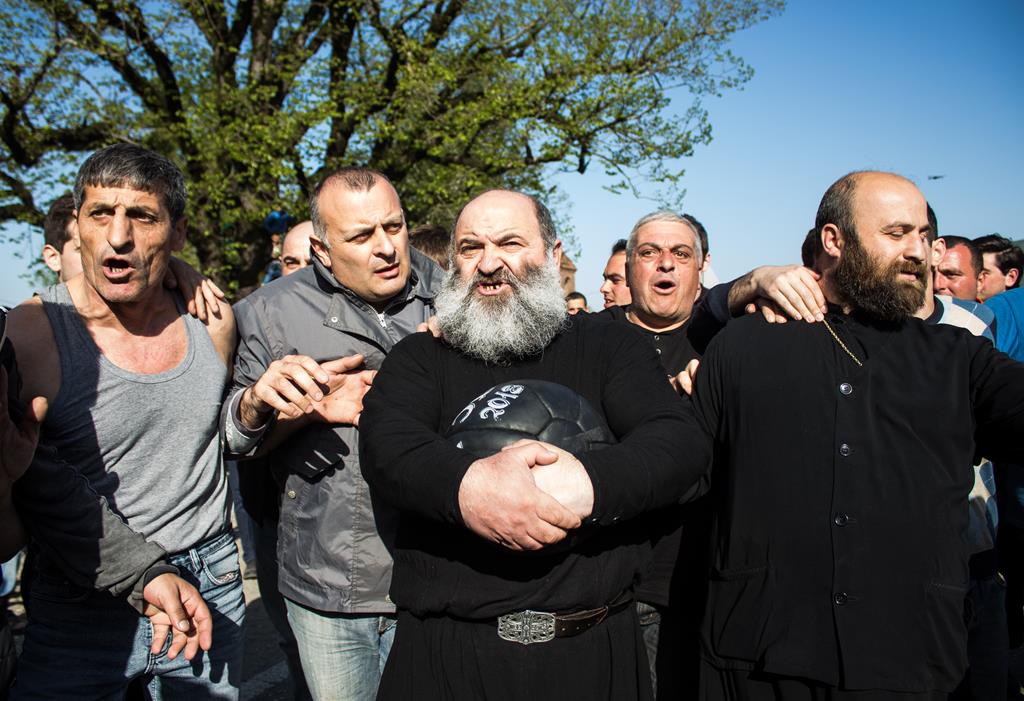
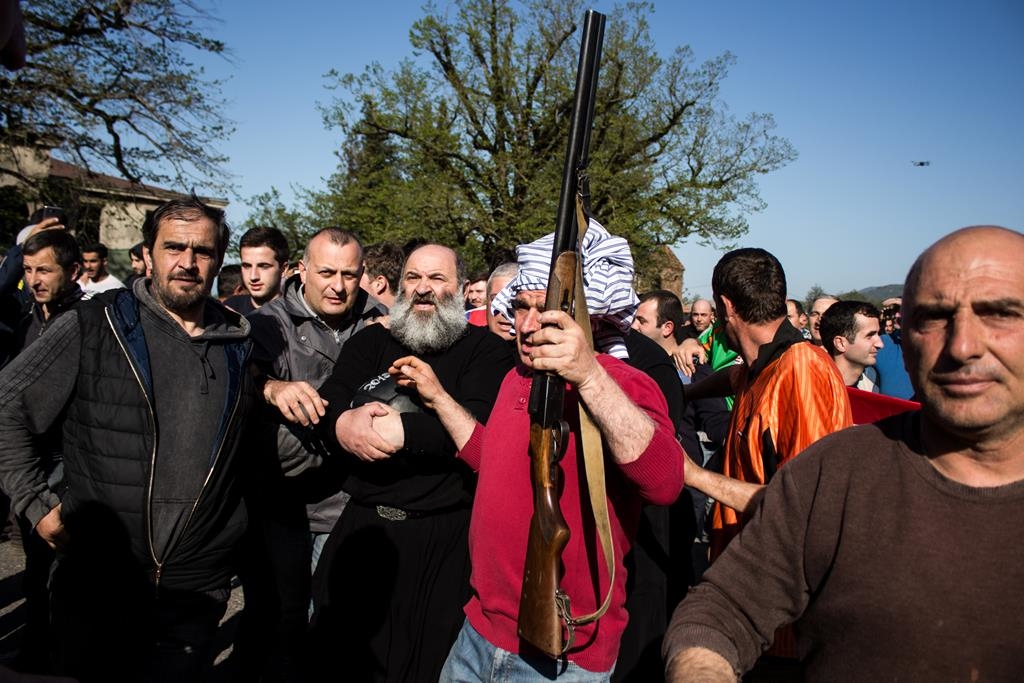
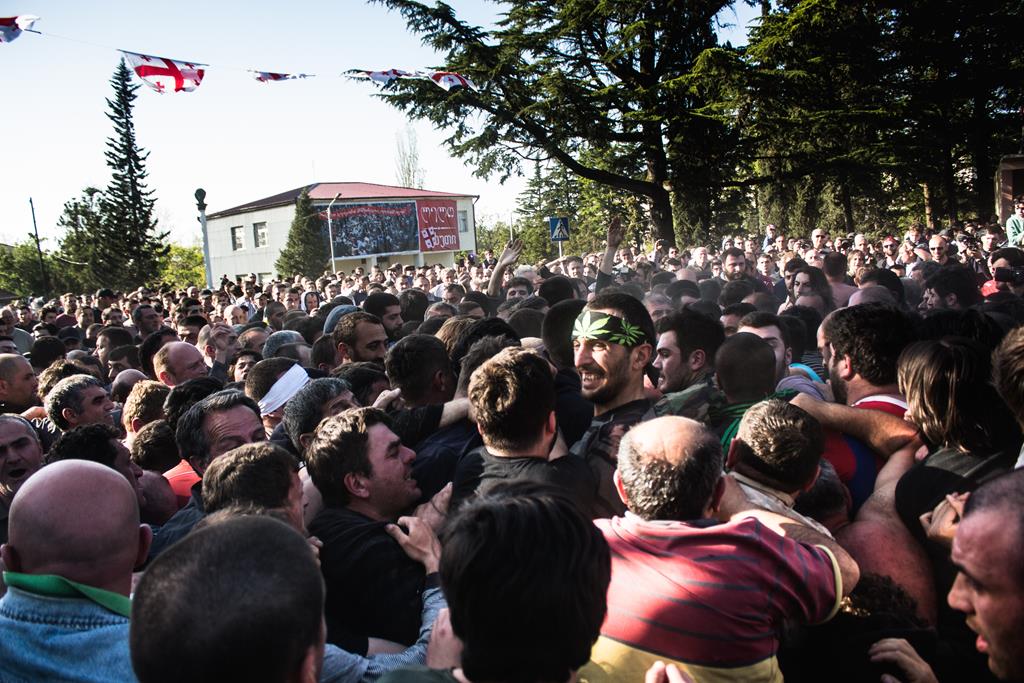
Its usually hard to see the ball because of the large crowd. When someone sees it, they indicate it by pointing a finger towards it so the rest know where to ‘attack’.
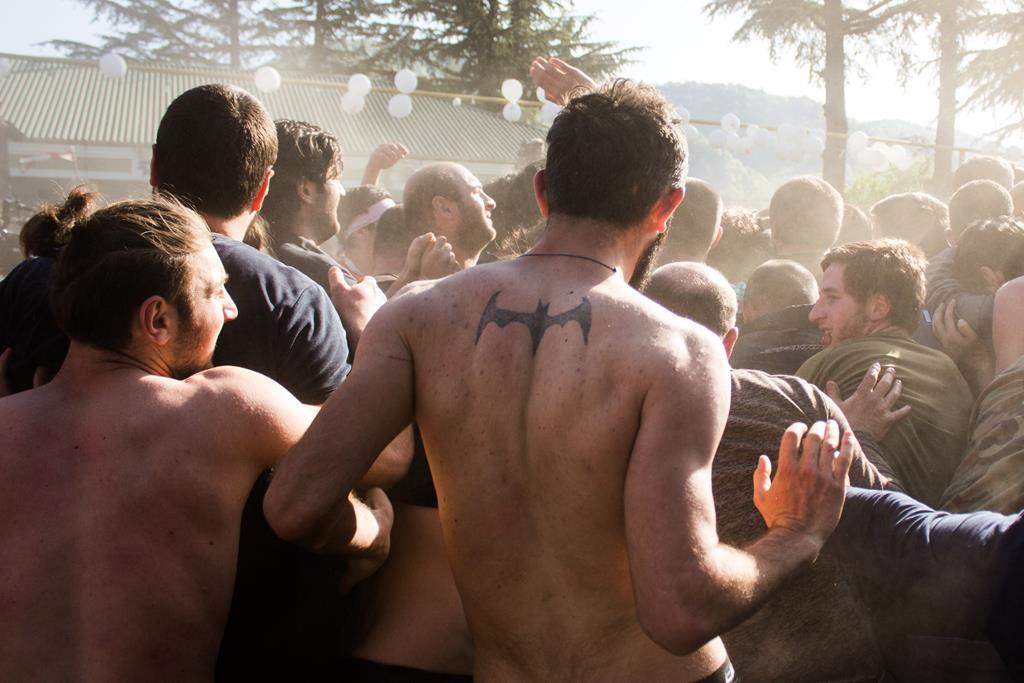

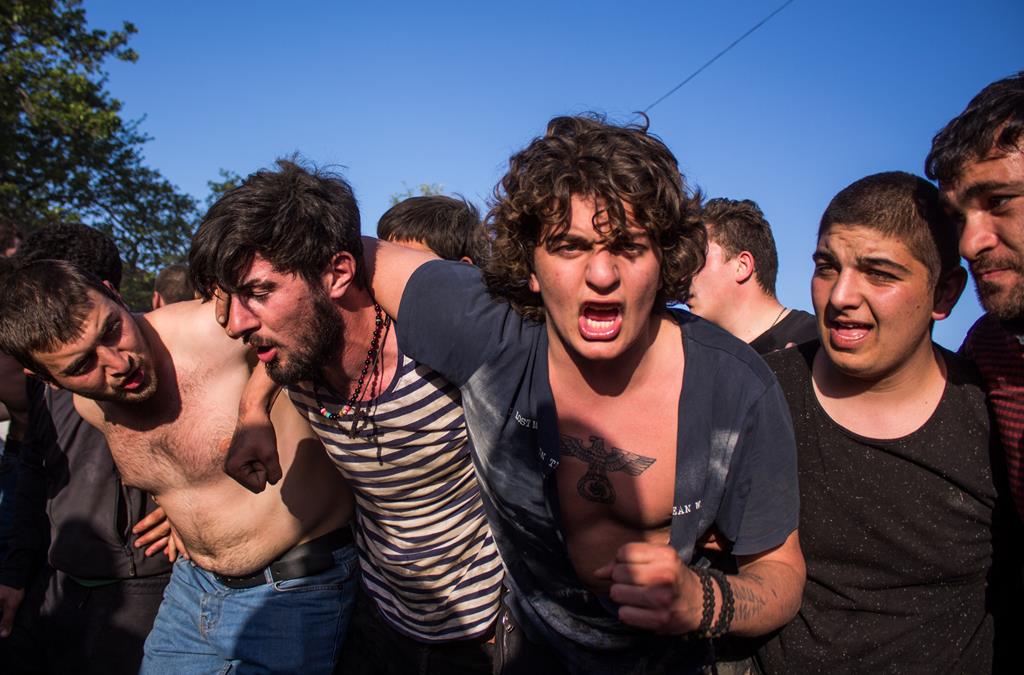
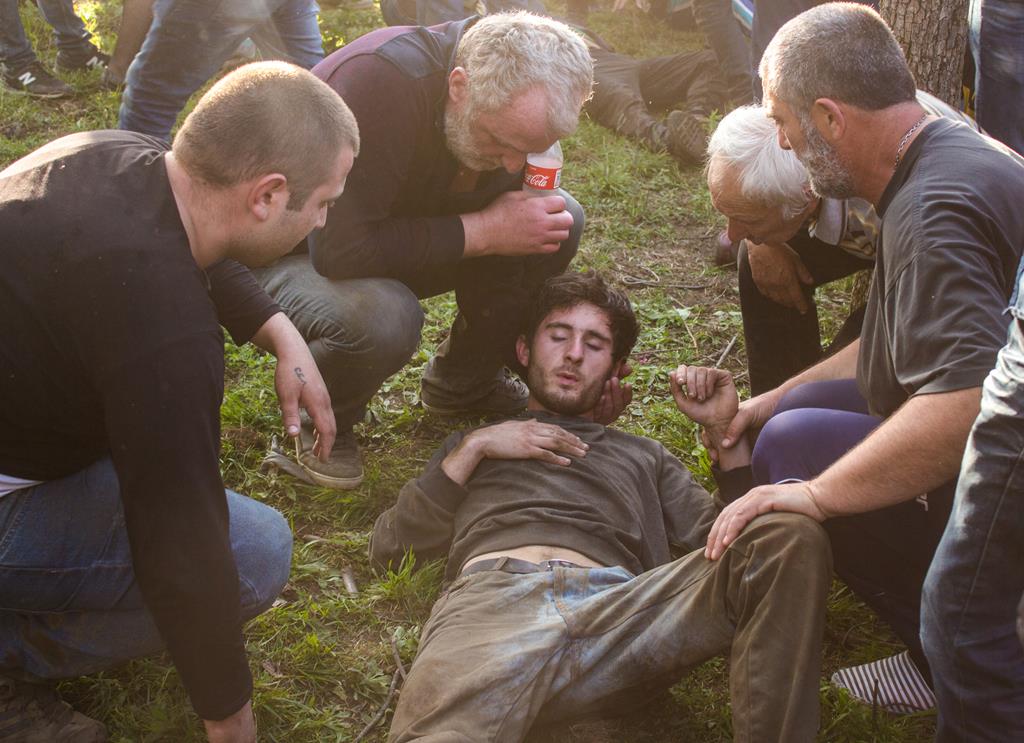
Players try to be careful in order to prevent major accidents from happening. However, a number of minor injuries were reported such as broken bones and hypoxia.
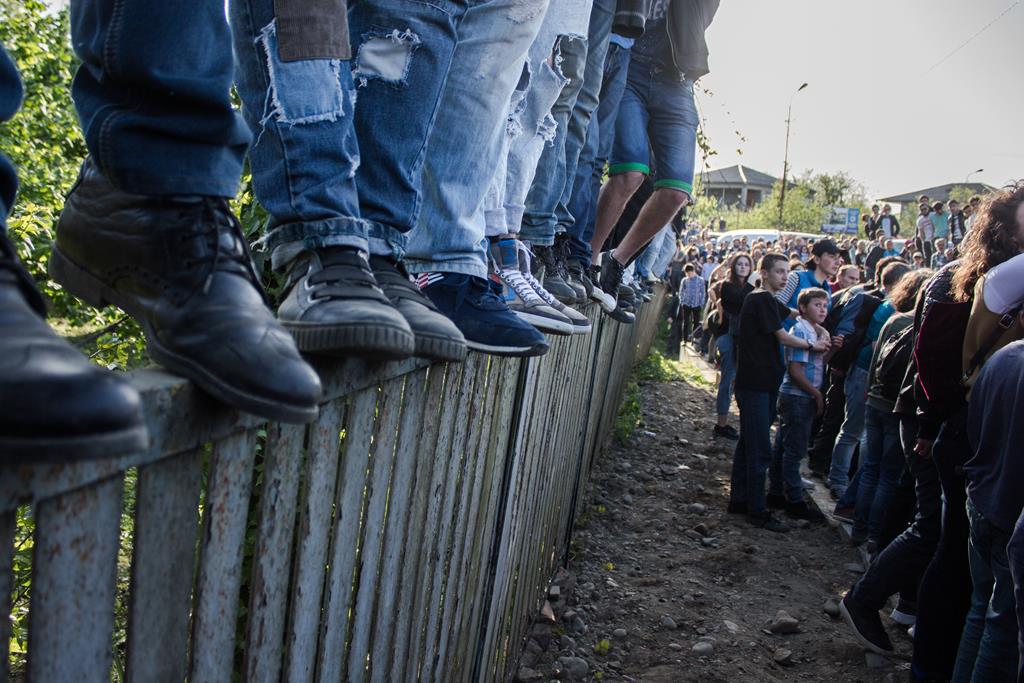
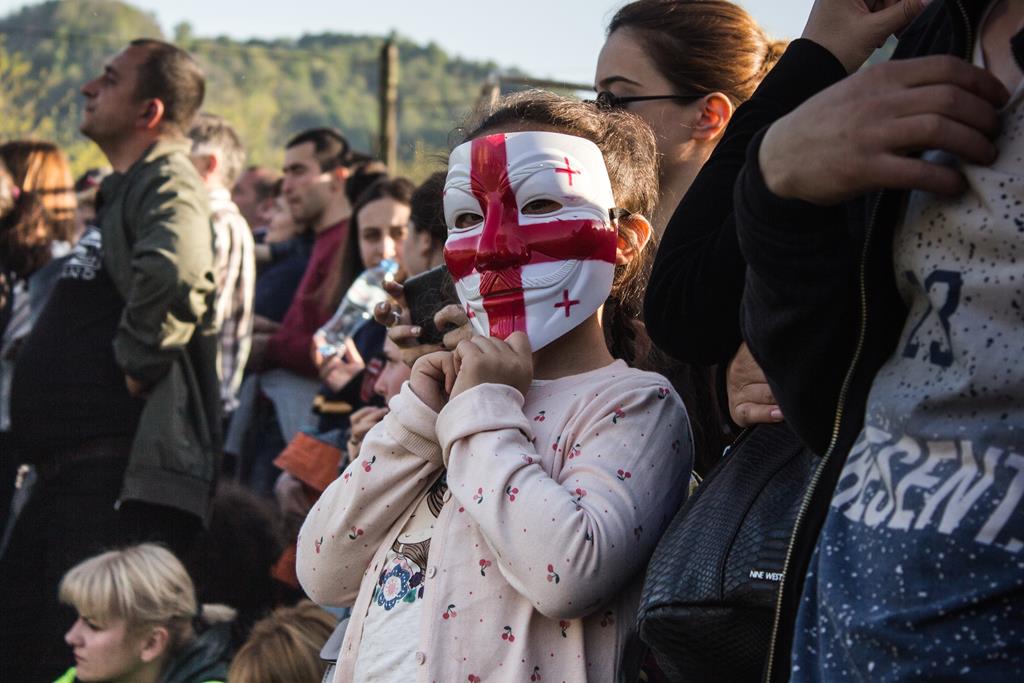

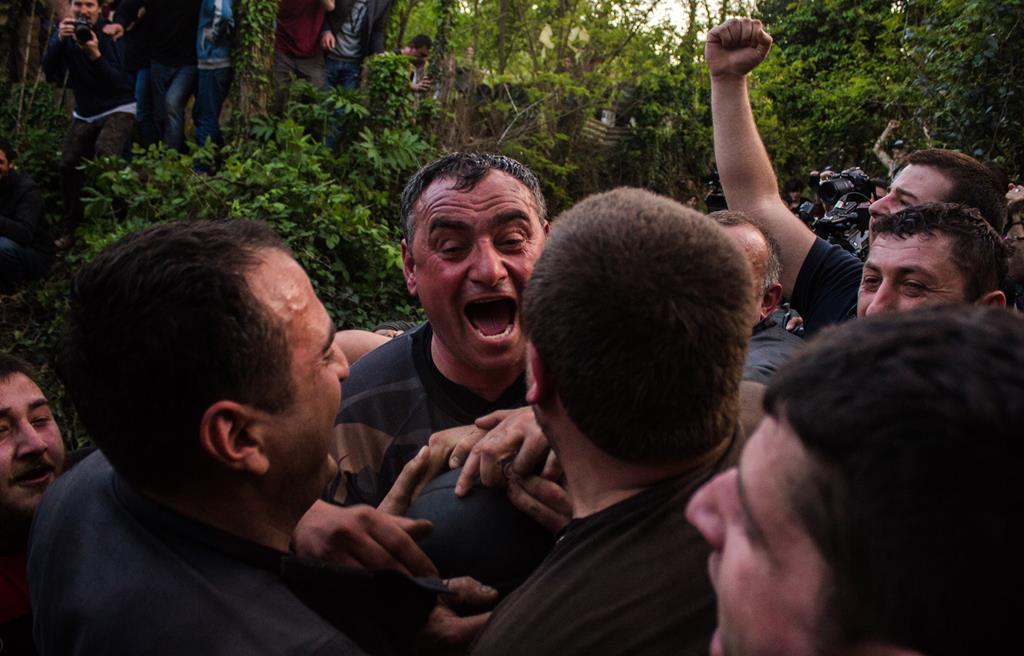
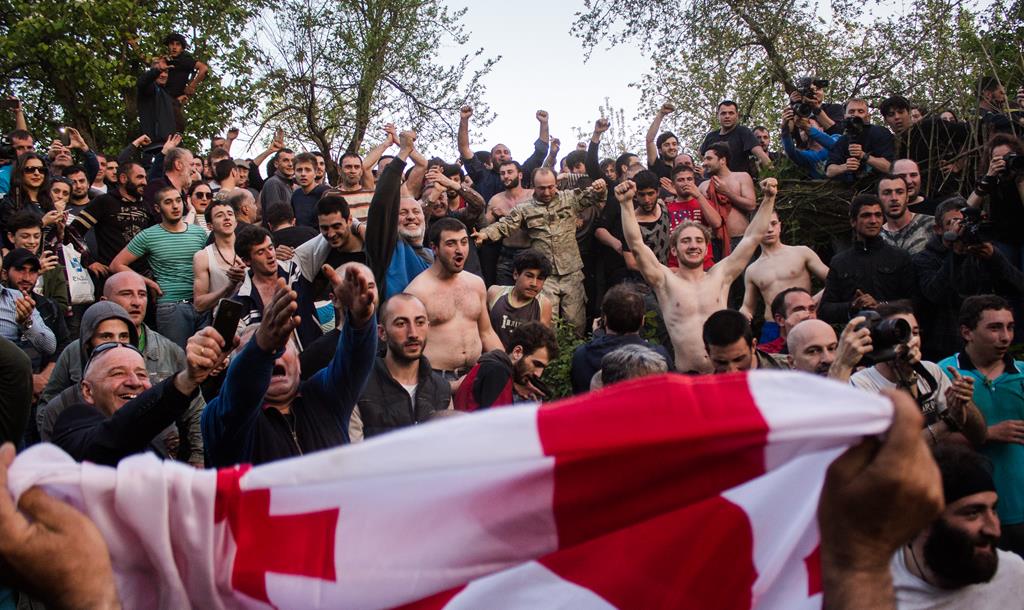
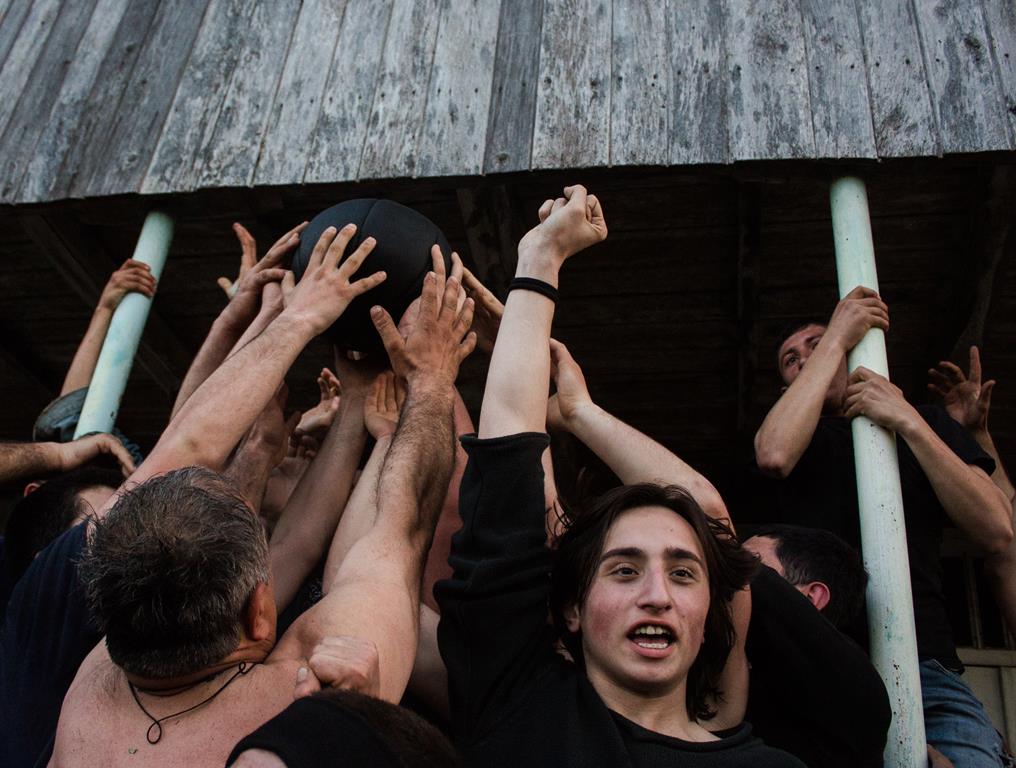
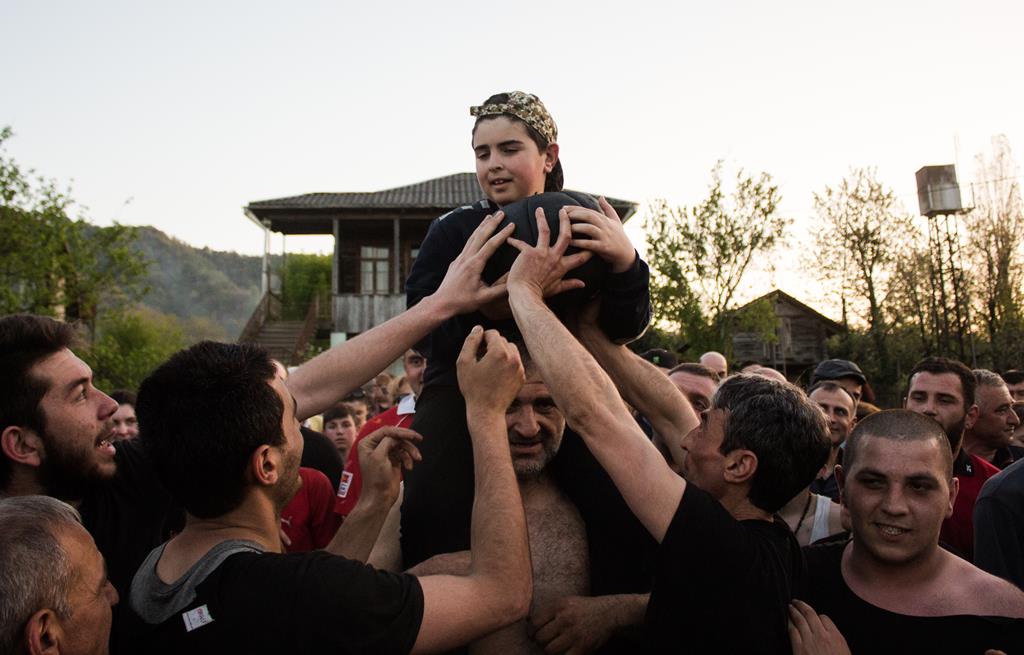
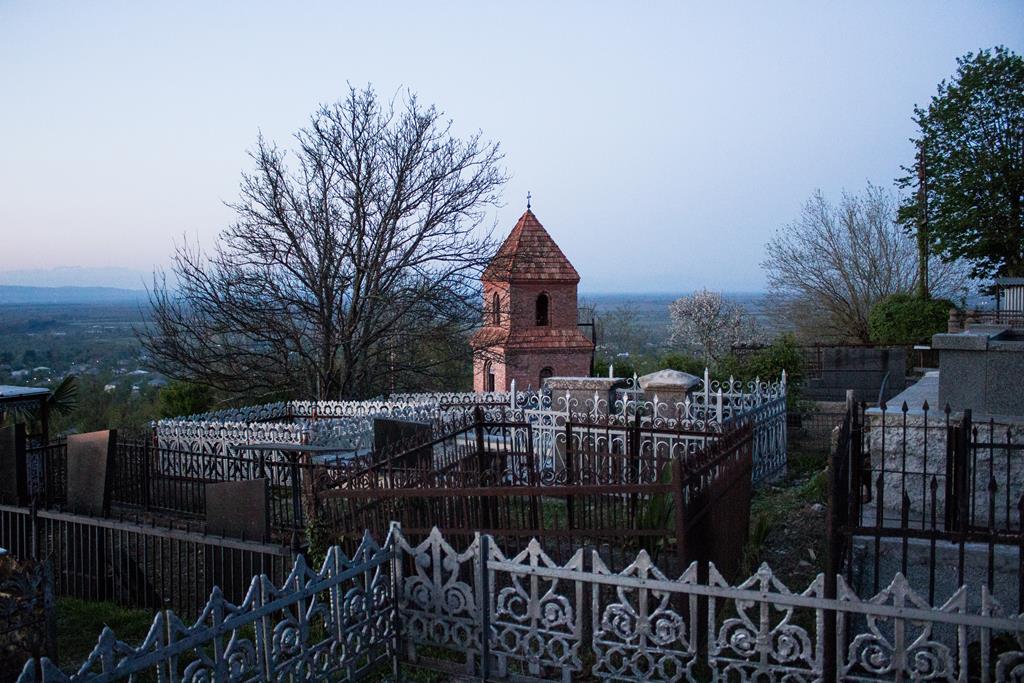
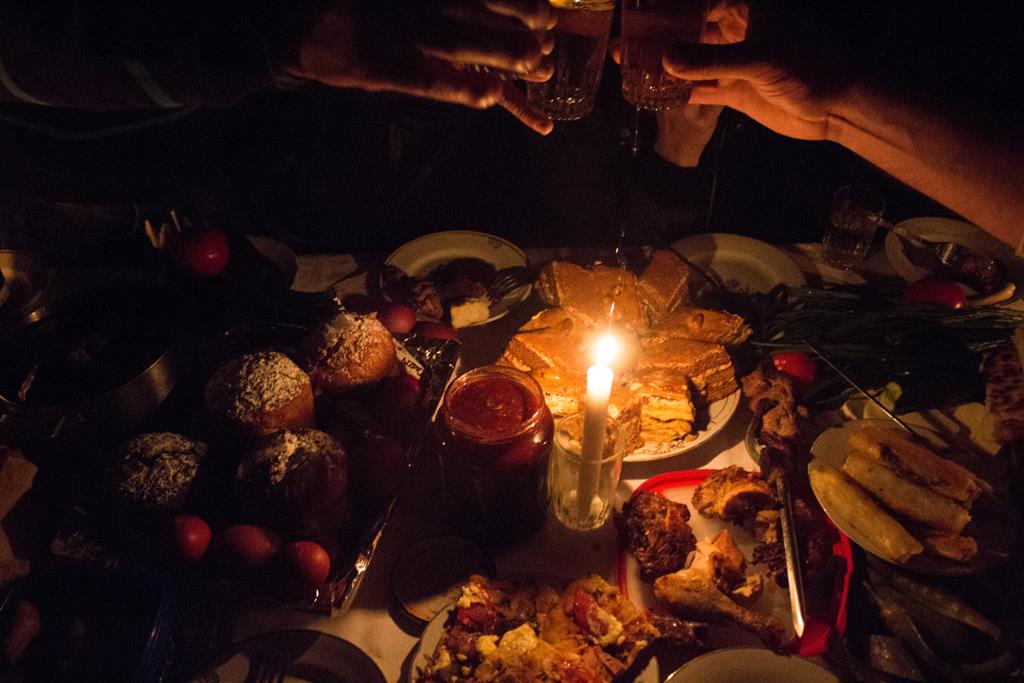
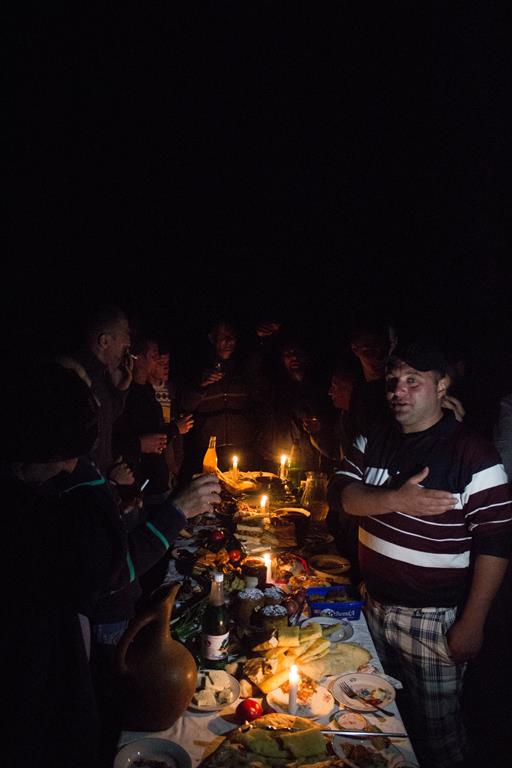
The day ends with a supra (a traditional get-together) in the graveyard. The supra is prepared by the families of the participants from both teams. Toasts are made for past games, the well-being of all the people involved, and the souls of relatives and friends who have passed away.











